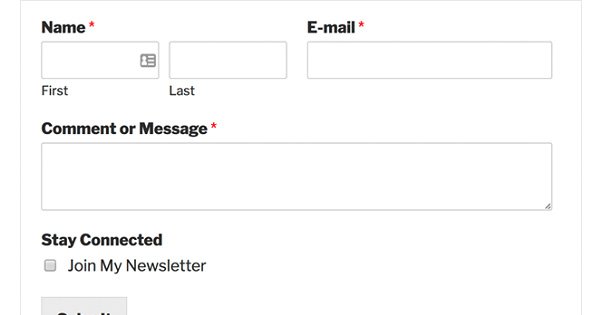How to Keep Yourself From Getting Bored While Blogging
Published by Drew Hendricks • Content Marketing • Posted July 19, 2019 ContentPowered.com
ContentPowered.com
For some, blogging is like a dream come true. You can make a living – a good living – from home! All it takes is some web hosting, a little technical know-how, and the ability to write blog posts on a regular basis. There’s nothing to it!
Well, the golden age of blogging is long over by now. These days, the basic barrier to entry is much higher. You need to know technical SEO, you need to know keyword research, you need to, well, treat it like a job. Blogging can be as much or more responsibility than a 9-5 job, and worse, if you have a bad week, a medical issue, or a catastrophe, you’re on your own. You don’t get paid if your site isn’t working. There’s no back-up, no vacation time, no benefits.
Anyone who has ever tried to turn a hobby into something they do for a living knows one dark secret. That phrase “when you do what you love, you’ll never work a day in your life”? It’s supposed to be placating, uplifting. It’s supposed to tell you that when you love what you do, your work won’t feel like work.
The dark secret is that the opposite is generally true. If you take what you love and try to make a living with it, more often than not you’ll come to hate it. People who grind card game tournaments for a living end up hating the game. People who craft for a living end up stalled out with their inspiration, struggling to come up with something that will sell, rather than something they like.
And people who write, who blog for a living? Well, we run into all kinds of issues. Writer’s block can make it difficult to put words on paper in the first place. Keyword research takes passion out of the equation and replaces it with commercialism. And, worst of all, sometimes we just get bored.
Boredom is a threat. It’s a huge threat. When you’re bored, you just stop caring. When you stop caring, it’s easy to let a site die, and at that point it becomes just one of a million failed websites lingering around the web, or fading into obscurity. Eventually, people might only vaguely remember your brand name, and the only way they can find your content is through the wayback machine.
Thankfully, boredom can be fought. It’s not a death sentence, it’s just a rut, a lull. You can work past it. I’m not going to lie; sometimes it takes a lot of effort to get past. Even so, anyone who has reached a phase of boredom with their site has a number of options they can consider.
Bring the Magic Back
When you’re starting out with a new blog, you have untapped potential around every corner. Once you’ve been blogging for a while, it’s easy to keep running into dry wells. So how you can you bring the magic back?
Read more. Read more, and read broadly. Just because you’re writing about, say, marketing and social media on a daily basis doesn’t mean you have to restrict yourself to reading about those topics 24/7. Follow your passions, your interests!
One of the biggest driving factors for boredom in blogging is simply reaching the 80/20 point. You’ve done all of the basic and intermediate reading and learning. The more you read, the more is already familiar to you, and the fewer new topics you find to read about. You’ve become something close to an expert, or at least a journeyman, and it’s harder to find ways to progress.
So why not read about other topics? Just pick up something new and learn about it. Sometimes the simple act of finding something new to read about is enough to solve some boredom. Sometimes you can find some angle on that new topic that ties it back to your core blogging topic.
For example, maybe you’re tired of reading about social media, but you pick up a book on the behavior of pack animals. You read about those impressive flocks of starlings, or about the pack dynamics in a herd of deer, or even about herd immunity in humans. It has nothing to do with marketing, but it’s learning about the world around you.
And hey, maybe it gives you inspiration on how to visualize a social media audience, and how you can guide the behavior of a group of people using herd dynamics.
Branch out into new formats. Writing is easy. Good writing is difficult. Technical writing requires mastery over grammar and spelling, and web writing requires mastery over vocabulary. You need to know the kinds of terminology and slang your audience will be familiar with, to know when you should include definitions and when you should avoid slang. Even so, after a few years of regular blogging, it’s easy to have mastered the blog post format.
Why Not Try Something New?
I’ve mentioned before in other articles that you can recycle and repurpose content.
You wrote one huge, high quality blog post, but you can do so much more with it.
- Condense and convert your blog post into a script and read that script as part of a podcast. Now you have an entire new medium to learn: the spoken word. There’s a lot more to a good audio piece than just a script, and you’ll have plenty to learn as you give it a try.
- Further condense your script into an outline and convert that into an infographic. Now you have another new medium! You get to study existing infographics and learn graphic design, pick up new software to play with, and seek inspiration from the imagery of your industry.
- Take your podcast and put it to video. YouTube is a huge market, and a good video can not only draw in a new audience, but it can make you money as well. You already have the audio, so all you need to do is create a video. But wait, how do you even start doing that? Do you pick up a program for animation? Do you buy a camera to record yourself demonstrating it? Welcome to an entirely new format to explore.
You can even take a different perspective and lean away from your content to find other avenues to explore. Why not try to add some merchandise to your site? You can design stickers and pins, you can print t-shirts, you can work on mailers and pamphlets; there are all kinds of tertiary forms of marketing you can explore, where failure isn’t devastating.
Talk to others in your industry. There are two approaches you can take to this: professional and casual.
On the casual front, you can simply reach out to your industry peers on social media, at trade events, or even just via email. Chat with them, talk to them, get to know them. Trust me; a lot of blog owners are going to welcome the chance to simply socialize, without the expectation of producing interview-ready content or have it all lead up to some partnership deal.
On the professional side of things, approach influencers with an eye for new content. Interview them about a topic. Create a small survey and send it out to a variety of influencers to see what they have to say. Sometimes building connections can be just as fun as starting your blog was in the first place.
Talk to your audience. You’re building them up, why not have a chat? You can do this in a Facebook group, a Twitter Chat, or even just with a Q&A post on your site. Why not just talk to them? Ask your readers what they do when they’re bored of their work. Talk about imposter syndrome, about networking, or even about business decisions. Just have a chat, solicit audience feedback, and see where it leads.
Challenge yourself. Nothing gets the creative juices flowing quiet like a challenge, which is why there are so many challenge systems out there. Here are a few ideas you could give a try:
- The 30-day topic challenge. Pick a single topic and try to write a new blog post about that topic every day. Pick different angles, argue different perspectives, dig deep into data or cover it broadly and superficially; just explore the topic in as much detail as you possibly can, learn everything you can about it, and write for your audience to explain it.
- The outreach challenge. This one is especially valuable to newer blogs. Reaching out to contact and network with other industry blogs can be tricky, especially when your site is small. It makes a lot of writers risk-averse. “Oh, they won’t want to talk to me, my site is tiny!” you say, justifying inaction. Put yourself out there and ask; the worst they can do is say no, and that’s no penalty at all.
- The grand experiment. Pick a hypothesis and test it! You can do anything from building a brand new microsite based on black hat techniques to see if they work, to experimenting with different configurations of ad budgets on social media. When you create and perform an experiment, you can do something new and interesting that you wouldn’t normally do. More importantly, you can use that experiment to create a great case study that can bring in a lot of links from other bloggers.
Whatever you pick, pick something that will challenge you without being entirely impossible. You want something you can do that will challenge you, not something that will drive you to quit from the sheer scale of the task.
Take a field trip. Most industries have events of varying scales you can attend. Check your local city for networking events or events in your industry. You might be surprised at what shows up. Many small events don’t actually have very good marketing, and you can get involved just by showing up. Others may be national or global events with thousands in attendance, and they can be incredible.
Have you ever attended a speech from an industry influencer? Have you ever participated in a workshop? Have you ever just traveled and known that the other end of the trip will be full of inspiration and new ideas? Traveling for an event can give you plenty of great information.
Start a new site. Now, this one can get out of hand if you’re not careful, but if you’re only keeping a couple of sites going, it won’t become too much to handle. If you’re bored with your site in your current topic, don’t abandon it, but spice up your blogging life by picking a new, entirely different topic and writing about that.
Affiliate networking sites are great for this. You can pick a topic that doesn’t have much to do with anything else you do, but focus it around a product line you have some interest in. Now you’re using what you know from your past blogging experience to build a new site, but you’re actively learning about a new industry and new niche at the same time. Plus, success has the immediate result of a new influx of cash, and who can say no to that?
Outsource it. Sometimes, boredom ends up being nigh-insurmountable, and you end up staring down the barrel of an account cancellation. You just don’t care anymore. And yet, your site still makes money, so you’re loathe to kill it off or sell it. So why not outsource it?
Hire someone to manage your blog for you and focus your attentions on the larger aspects of running a site. When you outsource the parts that take up a lot of time and energy and aren’t rewarding to you personally, you can focus on the parts that are rewarding, and that brings you right out of the slump. Sure, it costs money to hire someone to handle blogging, but that’s not such a bad thing. As long as you’re paying out less than you’re bringing in, you’re good to go.










